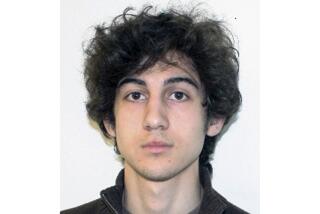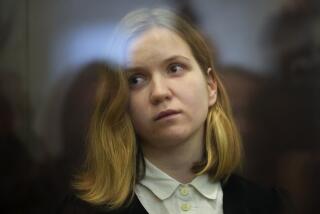Rolling Stone’s Boston Bomber a brilliant showcase for story
The latest Rolling Stone cover, featuring the angelic face of accused Boston Marathon bomber Dzhokhar Tsarnaev, has managed to accomplish several things.
Not all of them are bad.
First, it has outraged a community still hurting from the explosion, and offended the sensibilities of many who believe the cover glamorizes an alleged murderous terrorist, rendering him more in the mold of a Jim Morrison than a Charles Manson (both of whom have been Rolling Stone cover subjects). Comments on the magazine’s Facebook page are blistering.
Rolling Stone’s disingenuous explanation has only compounded the outrage.
“Our hearts go out to the victims of the Boston Marathon bombing, and our thoughts are always with them and their families. The cover story we are publishing this week falls within the traditions of journalism and Rolling Stone’s long-standing commitment to serious and thoughtful coverage of the most important political and cultural issues of our day,” the editors wrote in a note that appears online atop the story and on their Facebook page. “The fact that Dzhokhar Tsarnaev is young, and in the same age group as many of our readers, makes it all the more important for us to examine the complexities of this issue and gain a more complete understanding of how a tragedy like this happens.”
I don’t doubt the editors when they say their hearts go out to the victims. But here’s what they mean after that: We went for shock value. We’re trying to sell magazines here. We thought we’d get a lot of attention if we juxtaposed that kid’s seraphic mug with the brutal cover lines: “The Bomber. How a popular, promising student was failed by his family, fell into radical Islam and became a monster.” And guess what? We did.
Personally, I like the cover. It brilliantly showcases the contradictions of the well-researched but ultimately inconclusive story by Rolling Stone contributing editor Janet Reitman. She marshalls many facts already known, reports out new stories about the Tsarnaev family and most important, manages to get many of the young man’s friends to talk to her about their infamous friend. Most of the friends are still puzzling out how the beautiful boy in the photo--which was widely circulated after the bombing--could participate in such evil.
Reitman tries hard to explain the inexplicable. She builds a solid theory about how a young man at loose ends with a hole in his soul might have become a terrorist:
Like many immigrant children, Tsnarnaev had a foot in two worlds, and kept them very separate. He may have felt abandoned by his parents who divorced, then moved to Russia at different times before remarrying. He may have felt unmoored after graduating high school and leaving the relatively coddled and elite world of Cambridge Rindge and Latin for the far less challenging University of Massachusetts Dartmouth, where he spent a lot of time getting stoned and selling pot.
His family, of Chechen origin, had been welcomed and supported by the U.S. as political refugees but never could get a toehold economically. As the American dream eluded them, older brother Tamerlan, who had never fully assimilated, soured on his adopted country, became more religious, then radicalized. He infected his flailing younger brother with hostile ideas about America’s relationship to Islam. (9/11 was an “inside job” designed to turn Americans against Muslims, etc.).
If you can get past the cover, and have the stomach for the subject matter, the story is well worth your time.
ALSO:
LAPD to release photos of additional Hollywood robbery suspects
Asiana Airlines drops plan to sue TV station over fake crew names
LAPD: Roving Hollywood robbers may be Zimmerman protest vandals
Twitter: @robinabcarian
More to Read
Sign up for Essential California
The most important California stories and recommendations in your inbox every morning.
You may occasionally receive promotional content from the Los Angeles Times.











